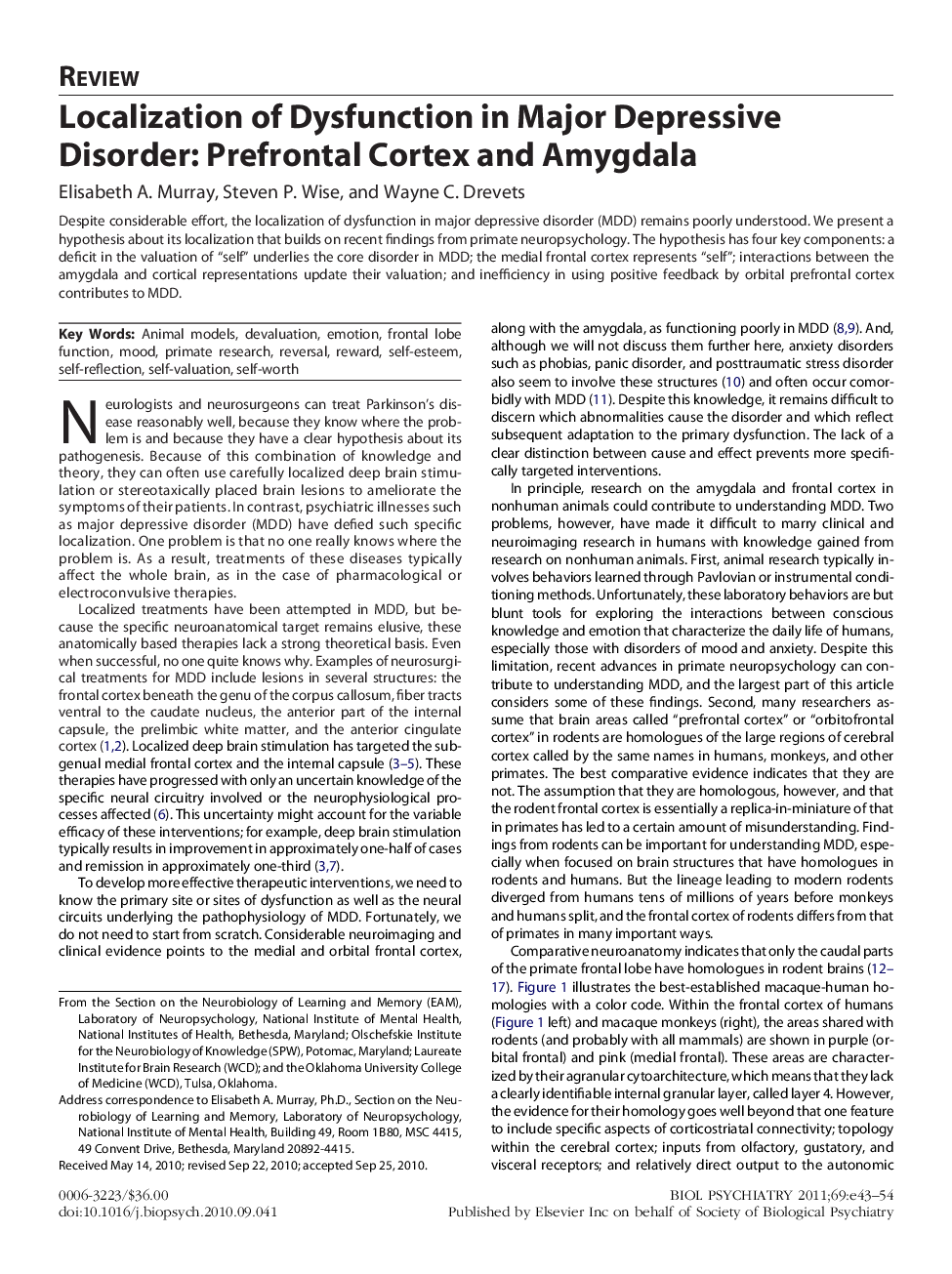| Article ID | Journal | Published Year | Pages | File Type |
|---|---|---|---|---|
| 4178608 | Biological Psychiatry | 2011 | 12 Pages |
Abstract
Despite considerable effort, the localization of dysfunction in major depressive disorder (MDD) remains poorly understood. We present a hypothesis about its localization that builds on recent findings from primate neuropsychology. The hypothesis has four key components: a deficit in the valuation of “self” underlies the core disorder in MDD; the medial frontal cortex represents “self”; interactions between the amygdala and cortical representations update their valuation; and inefficiency in using positive feedback by orbital prefrontal cortex contributes to MDD.
Keywords
Related Topics
Life Sciences
Neuroscience
Biological Psychiatry
Authors
Elisabeth A. Murray, Steven P. Wise, Wayne C. Drevets,
